
Introduction
Opeth may not be touring right now, but there's still plenty of creativity in their world. For one, they've just put their name on a second collaboration with Yorkshire's Northern Monk Brew Co in the golden-canned shape of the superbly titled Communion Pale Ale (for the uninitiated, Opeth's last album was called Pale Communion).
And though the band's creative visionary Mikael Åkerfeldt is waiting for his own delivery of it when he speaks to us, he has something he needs to get off his chest regarding their other new release, The Book Of Opeth.
"Everyone's so friendly, so kind of respectful in it," he rues on the definitive and sumptuously presented story of the band's first 25 years, told in his own words with bandmates and close associates adding their perspectives, too.
"I don't know if they were being diplomatic or they were just lying," he laughs. "I'm sure they have a lot of shit on me, too, but they were friendly! Obviously, I told them beforehand they'd be fired."
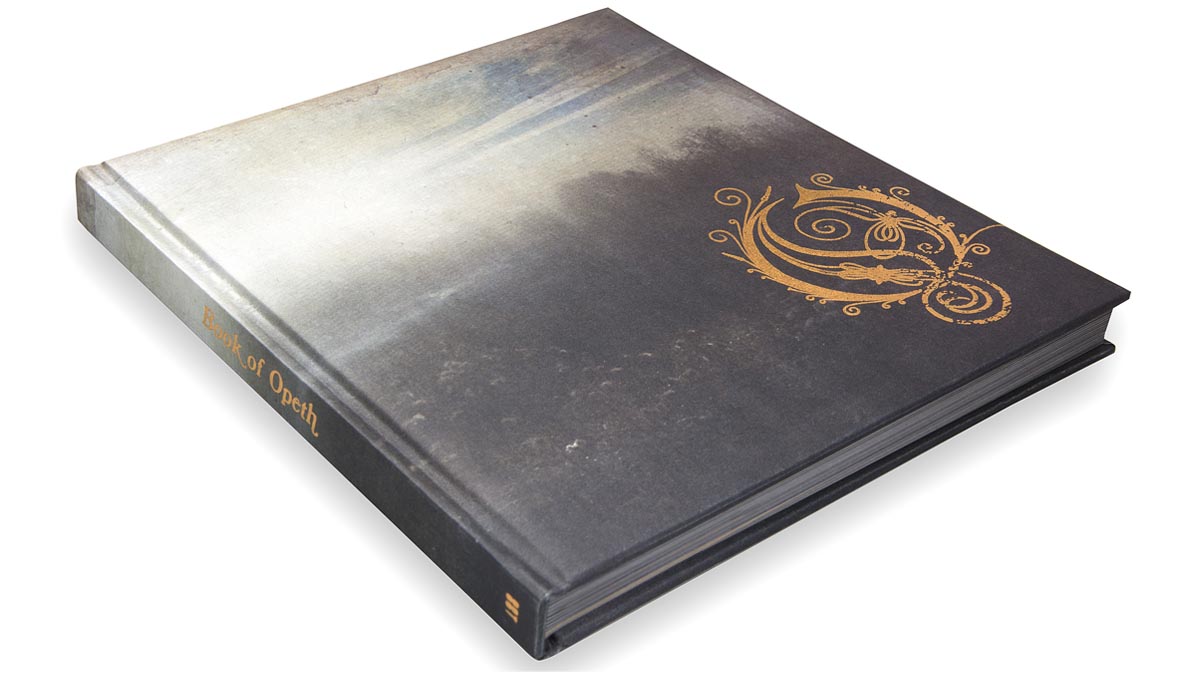
He may have his tongue firmly in cheek on that subject but Åkerfeldt is absolutely serious about his intense love for his craft. He's currently writing a new record at the band's headquarters in Stockholm, and when he speaks about guitar with us at the end of another day piecing parts together, his engaging honesty and undeniable passion as a listener and player shines through. And, as we'll find out, it very much informs the kind of guitarist he is.
Åkerfeldt has proved himself to be one of the most versatile players to emerge from the metal scene, and the truly progressive approach with which he's driven his band means their next step is always unpredictable. As we begin to quiz him to learn more about his approach as a player, we discover the bandleader, vocalist and songwriter first picked up a guitar with a different ambition...
Opeth play the Be Prog! My Friend festival in Barcelona on July 2 with Steven Wilson, Between The Buried & Me, Magma and The Pineapple Thief. Head over to Be Prog! My Friend for more info and tickets.
The Book Of Opeth is out now - Opeth Book has more info. Plus, check out Northern Monk Brew Co for the lowdown on Pale Communion Ale.
Don't Miss
5 minutes alone: Mikael Akerfeldt
Mikael Akerfeldt on smashing his first guitar and onstage accidents
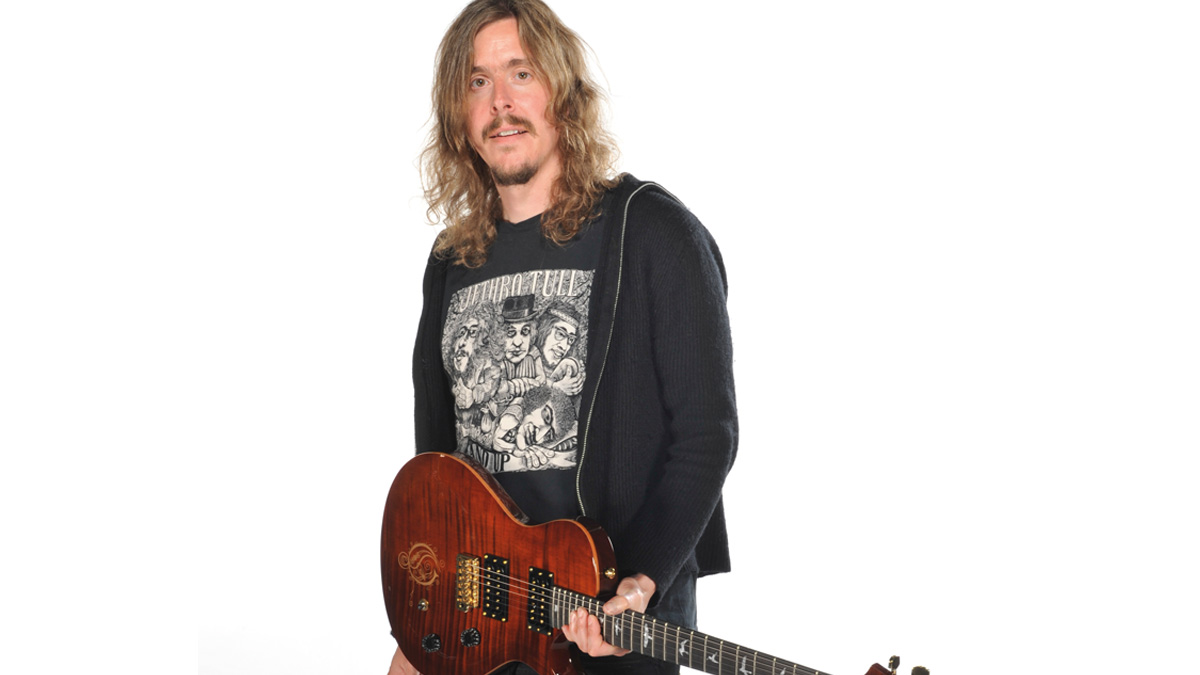
1. Listen
"When I started, I wanted to be a lead guitar player. I was practising and learning like everyone else with Smoke On The Water and House Of The Rising Sun... those kind of songs.
"But it depends on what you want to be. If you want to be a lead guitar player; if you want to be a shredder, there's only one thing to do and that's practise. I did that too, but then I became more interested in writing songs.
"For me as a guitar player, what I want to be is versatile and to become a versatile guitar player you have to listen to music. Different types of music and different types of guitar playing. I didn't listen to a diverse range of music because I wanted to develop my guitar playing, but it kind of happened naturally because of that.
I learned everything from listening. I haven't learned anything from watching a YouTube shred guitar-playing video
"Listening to music has really helped me as writer. I am definitely a product of my record collection. I love music so much it's a disease - people who come into my place here and see my record collection think I'm sick: 'You need to go to a doctor.' It defines me as a person. If you take music out of my life, it's a scary to think what would be left.
"So, records of other bands' music are absolutely essential to me to develop my songwriting, to develop my singing, guitar playing and my views on keyboards, my ideas on drums, bass and how a band is supposed to play collectively. It's developed my ideas about sound production, about individual sounds... I learned everything from listening. I haven't learned anything from watching a YouTube shred guitar-playing video. Nothing."

2. Get rhythm
"If you're a guitar player, I think you have more benefit if you're a rhythm guitar player than a lead player. Lead guitar players tend to get lost in lead guitar playing, and they're not interested in the song.
"I've met a lot of shredders who just talk shredding; they just talk Paul Gilbert, Steve Vai and Yngwie. And not a word about if the songs are good. You can play a song to a lead guitarist and they sit around and they start to itch, they get uncomfortable and finally they go like, 'Fuck this, when is the guitar solo?' Practise rhythm."
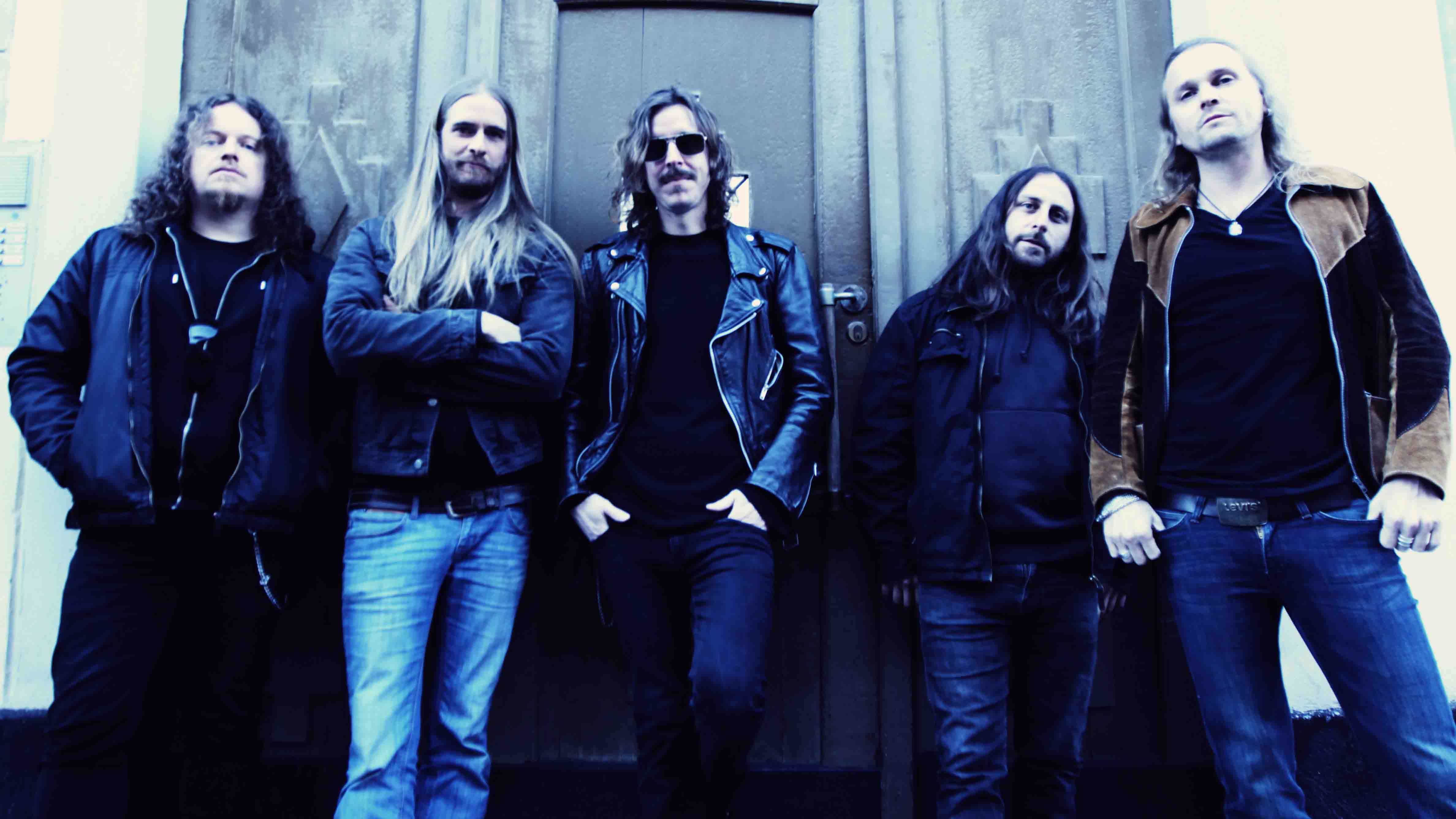
3. Pay attention to drums
"If you've got a good drum take, you're basically safe for everything else. If you've got the drums nailed down great, you're pretty much halfway there. As a guitar player, playing with a good drummer makes a whole lot of difference. Playing with a lousy drummer... everything is really difficult. Difficult for rhythm, difficult for leads. Difficult for everyone in the band.
"Once you play with Axe [Martin Axenrot), our drummer, for instance, he's a great drummer and playing with him is a joy. I've never said this to him, actually, and maybe I should, but he probably made both me and Frederik [Åkesson] better guitar players because he's so solid.
"I'm actually more involved with the drums with Axe now. You should hear my demos - they're very, very elaborate. The demos have really good drums, and I make sure that it's playable, so there's not going to be two crashes, a ride and a hi-hat at the same time. It's supposed to be played.
The reason I want to do good drums is because I want to impress Axe. I want to intimidate him
"And the reason I want to do good drums is because I want to impress Axe. I want to intimidate him. I want him to think, 'Fuck! I really have to step up to the plate and do something here because this sounds so good, I have to make it sound better.'
"I write for all the instruments, and I wouldn't be cocky and say that it sounds done, but the demos sound really good. And especially the drums, when I play demos to people they'll say, 'You really worked on the drums here - how do you do that?' But I love drums and I spend a lot of time on them."
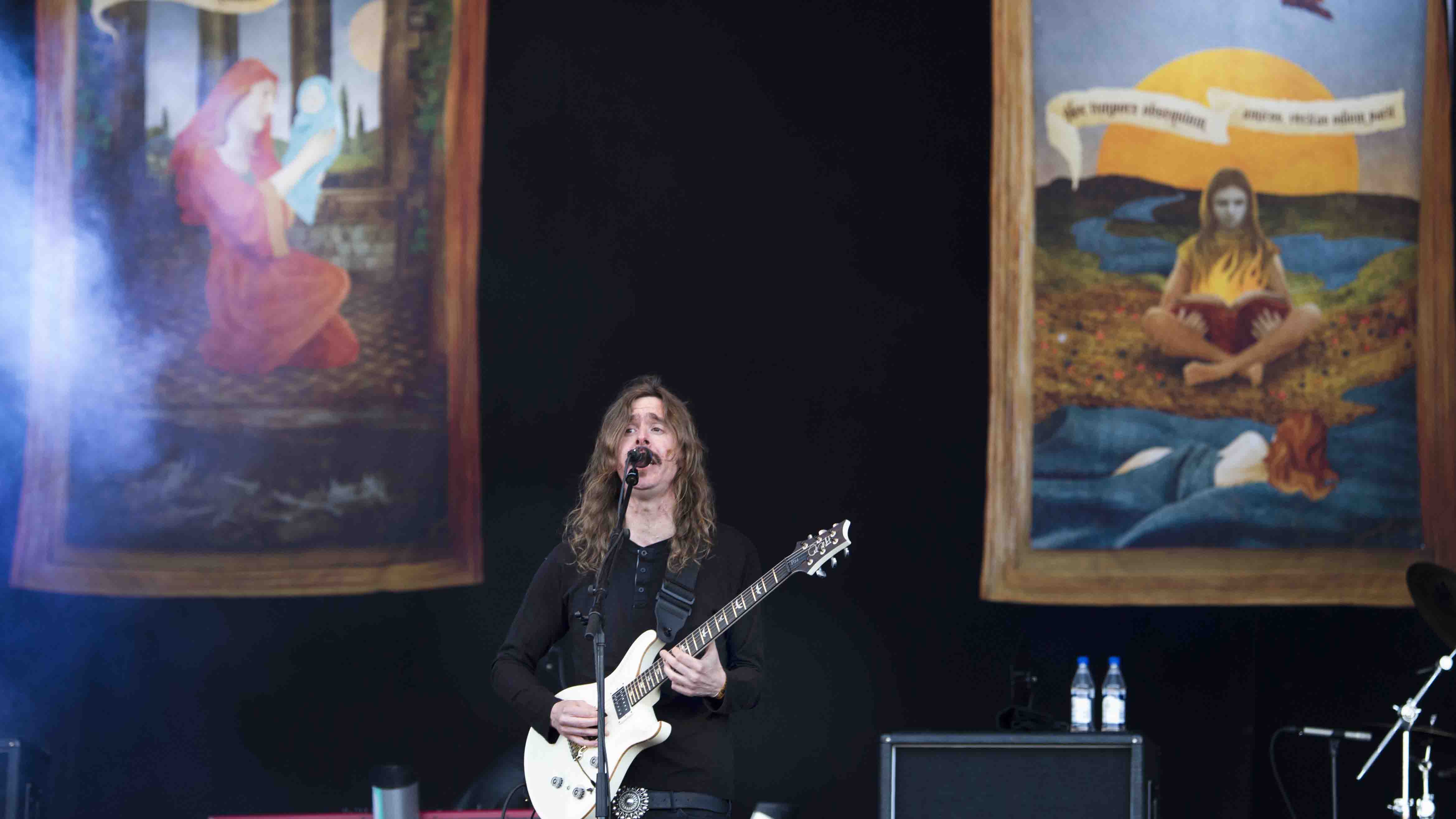
4. Find a creative space
"It's made a world of difference to me. In the premises where we have the rehearsal room, next door we've rented another room which is basically a tiny warehouse where we have guitars and equipment, but in the corner is my little studio. That's where I spend all my time when I'm writing.
"I love being there, it's my den... like a little hideaway. I put on a kettle - coffee not tea - and just sit there all day. I don't even eat lunch because I get so lost in the music I forget to eat, and I can look at the clock and it's none o'clock in the morning, then the next time I look it's three in the afternoon and I'm like, 'What the fuck happened?!'
"I love writing music and being there and doing mixes. When I get back home and I listen to the mix on my stereo I'll think, 'Fuck, I should have done that!' And then I'll have to go back and fix it.
"Sometimes I forget how much I love music and I kind of remind myself when I'm there: 'Wow, I love this. This is why I'm a musician, and actually, I am a musician.' It's nice to wake up every now and again and realise that you are what it says on your pretend CV!"
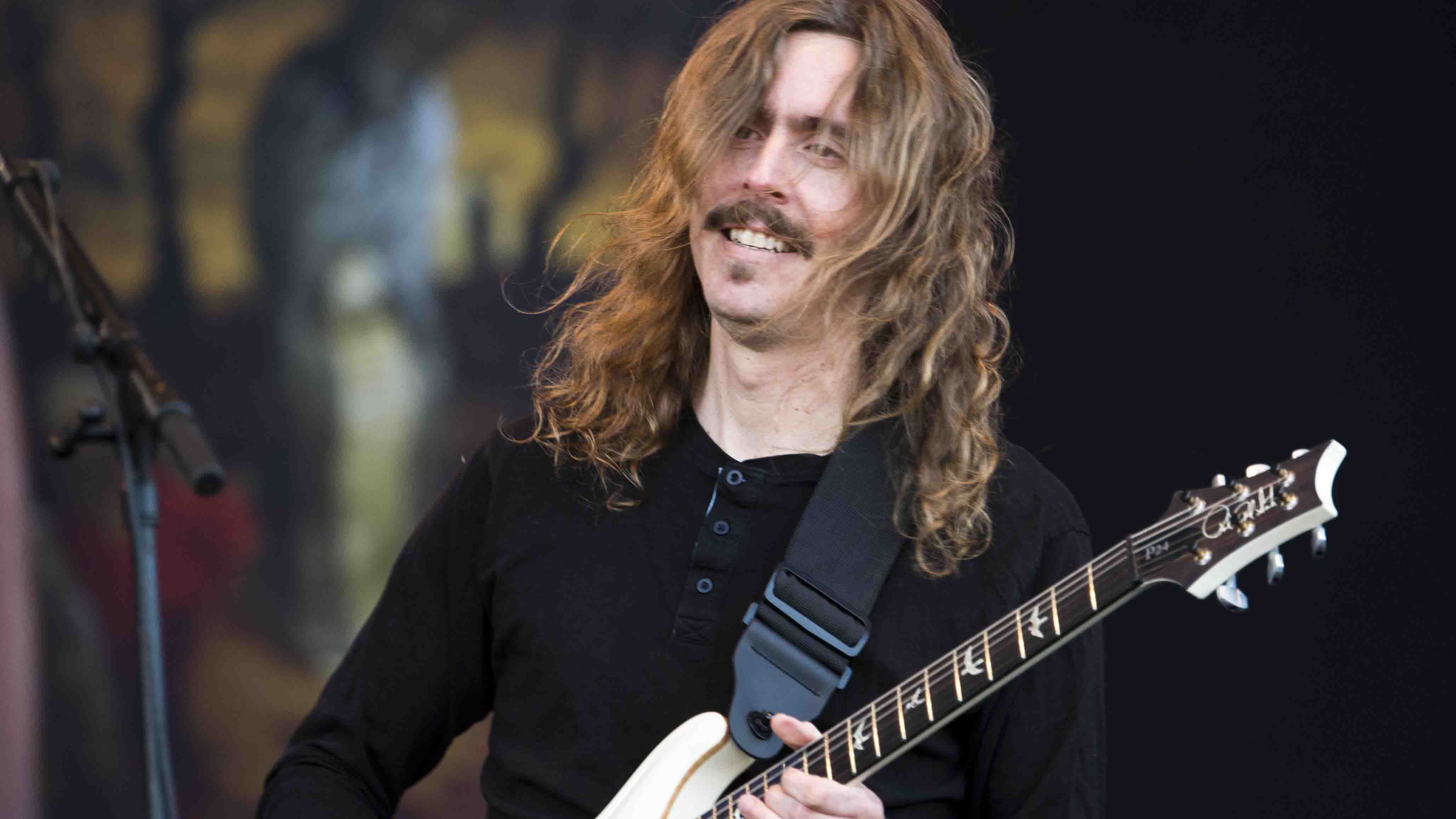
5. Your tone is in your hands
"I became interested in all the metal players, and I kind of found what I liked and what I didn't like about metal guitar players. Ultimately, it all boils down to guitar tone.
"Shredding can be interesting, but ultimately, it gets boring quickly. Really boring, actually. So, if you have a tone, specifically if you have a tone of your own, that's all you need as far as I'm concerned. If you have developed your own tone, you're well-off.
"I've met a lot of lead guitar players out there who are only into the technical aspect, and they don't have a tone. In fact, once they stop from a fast run it sounds like shit. And many of these shredders have, in my opinion, a tone that I wouldn't want to listen to even if I had a gun pointed at my head. It's more important to have a tone which makes it sound like you. That's much more important to me than the fast runs and everything.
Many of these shredders have, in my opinion, a tone that I wouldn't want to listen to even if I had a gun pointed at my head
"I think it's really difficult to distinguish players these days based on fast runs. You can only hear it's them once they stop and hang, linger on the note. That's when the personality comes out as far as I'm concerned.
"There are obviously exceptions to that: with Allan Holdsworth, you can hear it's him because of his choice of notes, and John McLaughlin, you can hear that's them even when they're playing fast. But generally it's when you stop.
"With Yngwie, you can hear it's him, too, but a lot of people are copying him, so it's difficult. But when he stops and lingers on a note, then you hear the real quality of Yngwie Malmsteen. You hear that he's one of the best metal guitarists in the world once he plays slowly. That's when the clock's stopping. Amazing.
"But when he plays fast it's like, 'Oh, it's fast, and that's cool.' It's neoclassical runs, up and down, but when he lingers on a note, that's when I could cry. That's how good he is. It's a shame he doesn't play more like that. People tend to give him a lot of shit for everything, saying he's not fast enough or whatever. But between all the fast guitar players, he's definitely my favourite."
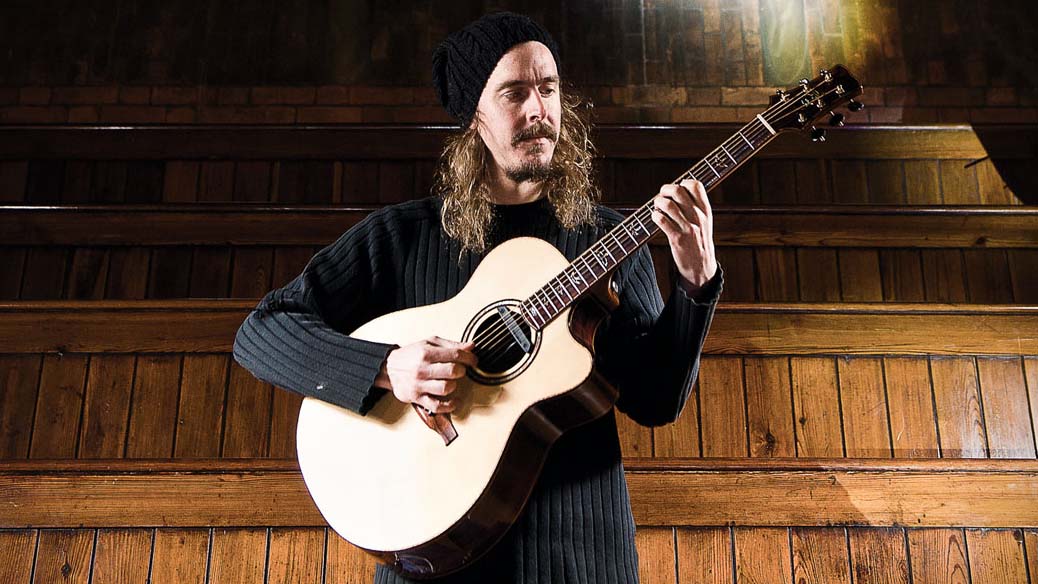
6. Playing acoustic is beneficial for all players
"My acoustic style developed through songwriting mostly. I always liked the acoustic guitar and loved the sound of it, especially fingerpicking. I'm still quite limited - I only play with my thumb and three fingers, but those three fingers are pretty speedy after years of playing like that.
"I worked in a guitar shop in Stockholm, and we only sold acoustic guitars - this was between '93 and '96 - so I played a lot of acoustic guitar in that store and fell in love with the instrument then. That has a lot to do with why we have so much acoustic guitar on our records and in our songs.
"And also, like I said before about being a versatile guitar player, ultimately for me that will include being an acoustic guitar player, too. That's really important for me; it's almost 50 per cent for me.
Being an acoustic guitar player is almost 50 per cent for me
"It's important to be able to strum properly. Give an acoustic guitar to a shredder and ask him to strum on an E major and see how it sounds. A lot of them are going to fail miserably. You need that kind of smooth, calm strumming like David Gilmour, or Roger Waters - those types of guys who are not shredders but who are songwriters.
"It's really important to be able to play acoustic guitar. You learn a thing or two if you go back to your electric guitar after studying acoustic guitar."
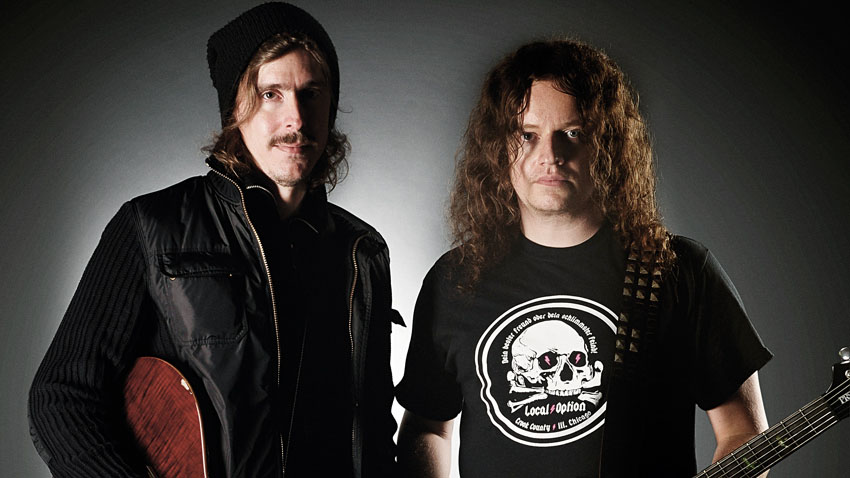
7. It's good to play from the heart, not the head
"Fredrik has told me he's definitely learned a lot from playing with me. Basically, because he'd never played a lot of acoustic guitar in his previous bands before he joined Opeth, so he definitely developed his fingerpicking style. He plays it like me, because he also plays with the three fingers, because that's how the riffs have been written.
"I think I got Fredrik to calm down a little bit as well, because he's a magnificent shredder - he can play really fast - but he's like Yngwie Malmsteen in that he has amazing tone. I was working with him yesterday and he was going to do a solo on a song, and I was like, 'You can't think technique now; you have to just play.' He knows what I like, and he knows that I don't necessarily like shredding.
"It's fantastic to work with him when he's just going off playing straight out of his heart. And I don't want to give him too many takes; I just want him to improvise and play the first thing that pops into his head.
"As far as I'm concerned, he's one of my favourite guitar players in the world, so it's a joy to have him in the band."
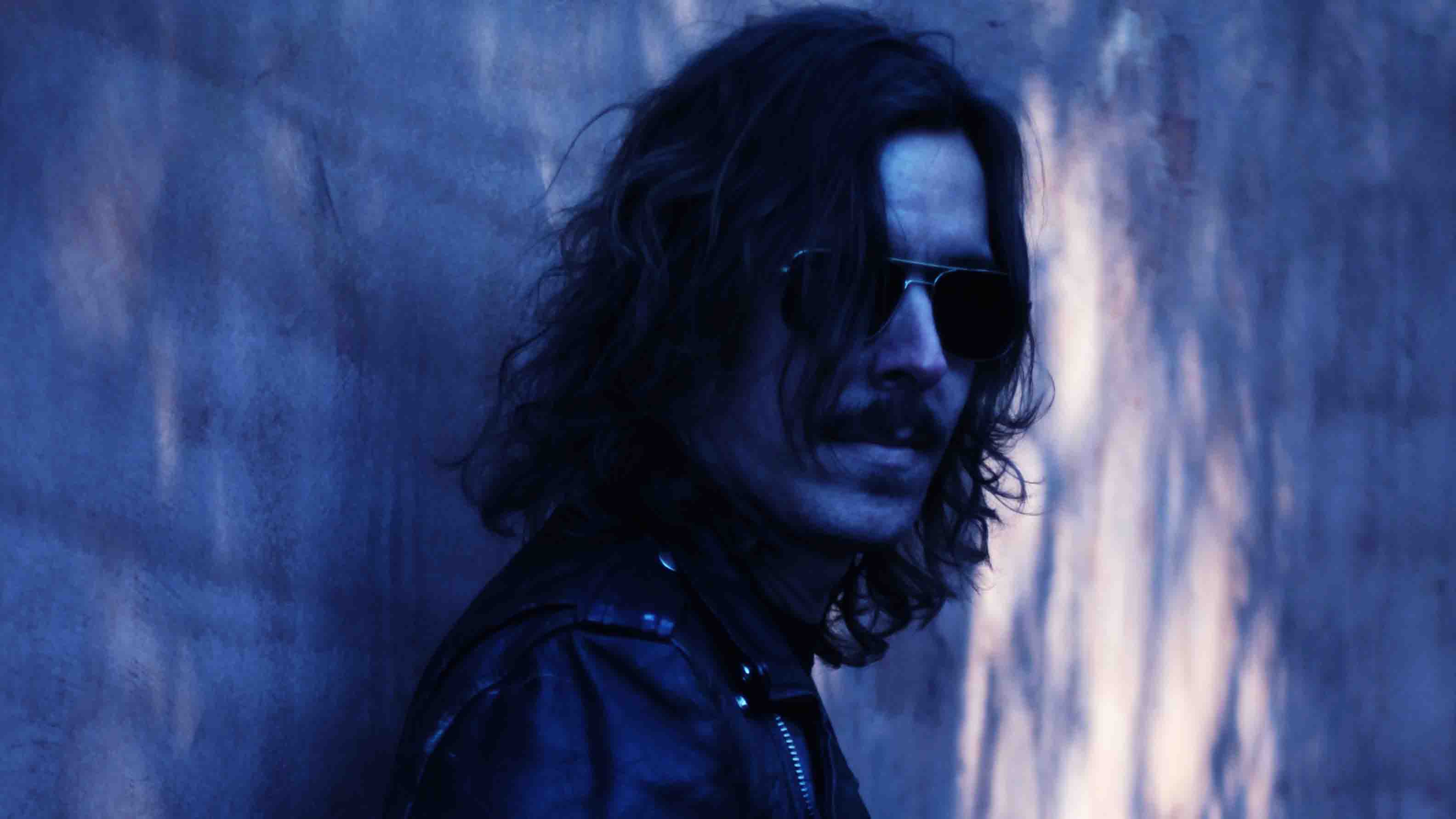
8. You don't have to tune down for metal
"On 90 per cent of our material, it's standard tuning, and obviously, you have your patterns; your fingers automatically play things because that's your style, but you want to avoid repeating yourself as much as possible and you do things differently.
"So, obviously, that's a bit more challenging with the standard tuning. But for metal music, when you tune down you get so much for free because it sounds heavy right away. But if you tune up, the same riff maybe sounds like generic shit!
"I don't want to get lost in tuning down too much, but with that said, I've done a couple of songs, two, maybe three songs with a drop D on the E string [these include Blackwater Park and The Grand Conjuration]. And I did a new song - I was playing an old Les Paul, and I'd done some fusion-esque type thing and I was like, 'What's next?' And I couldn't come up with something. So, I tuned the E string down to an A, which I'd never done before and came up with a really cool riff, though maybe it's generic if I tune up!
"But I love experimenting with tuning, more so with open tunings for The Ghost Reveries record, which I got from folk players like Bert Jansch, John Renbourn and Nick Drake, I think. Other than that, we're comfortable with the standard tuning, because the guitar sounds and feels the best that way to me."
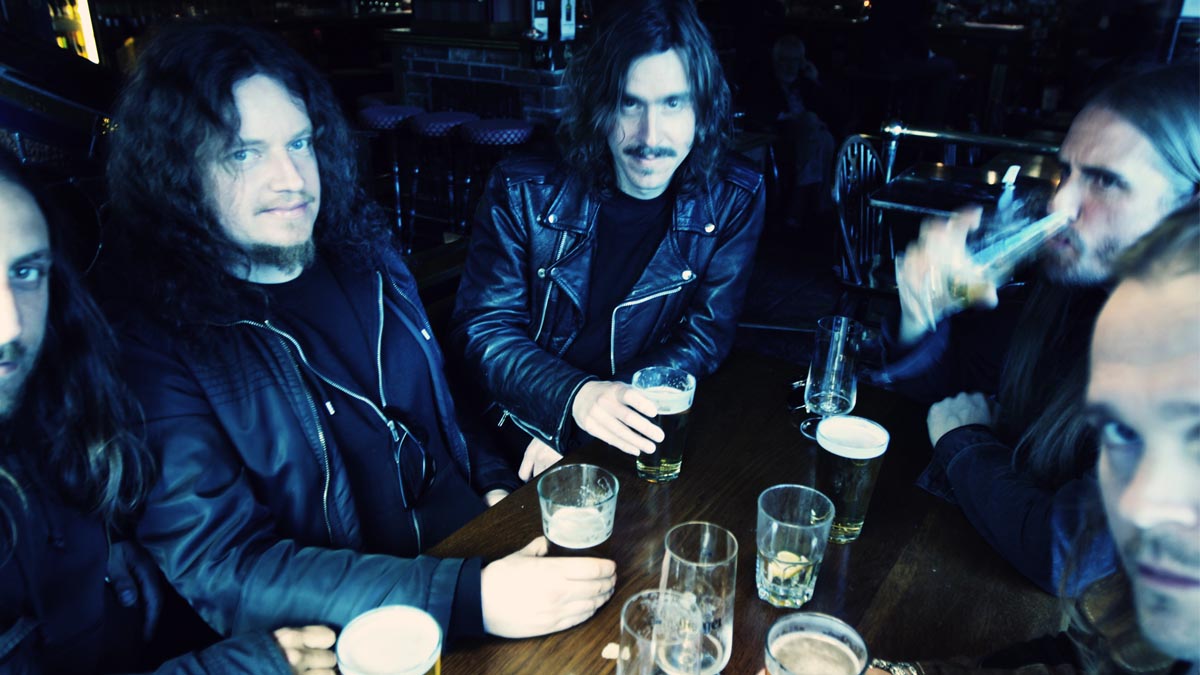
9. Share the load with your band onstage
"Sometimes I value the vocal more than the guitar playing, so if it's possible, Fredrik will play [a specific part] or we'll transfer lines to the keyboard. But that goes around, and we'll involve everyone with that.
"Sometimes there's three keyboards being played at the same time [on record] and it's impossible, so we rethink all the songs for a live situation. Sometimes I'll play a keyboard line on the guitar so everything is pretty much going to be there.
"We love doing it that way because we have never used tapes and we will never use them - we're always going to be a 100 per cent live band. So, we'd rather rearrange the material for it to fit on a stage. We shuffle things around as a band, and sometimes we even sing lines that we can't play. It's really interesting and it keeps the band on their feet.
"I think a lot of bands, they're so comfortable and nervous about fucking up, but I want to go offstage knowing if it was a shit gig, or knowing it was a great gig. I don't know how these bands can live with themselves high-five-ing each other saying that was a great show when a machine played everything. We're not one of those bands."
Don't Miss
5 minutes alone: Mikael Akerfeldt
Mikael Akerfeldt on smashing his first guitar and onstage accidents

Rob is the Reviews Editor for GuitarWorld.com and MusicRadar guitars, so spends most of his waking hours (and beyond) thinking about and trying the latest gear while making sure our reviews team is giving you thorough and honest tests of it. He's worked for guitar mags and sites as a writer and editor for nearly 20 years but still winces at the thought of restringing anything with a Floyd Rose.